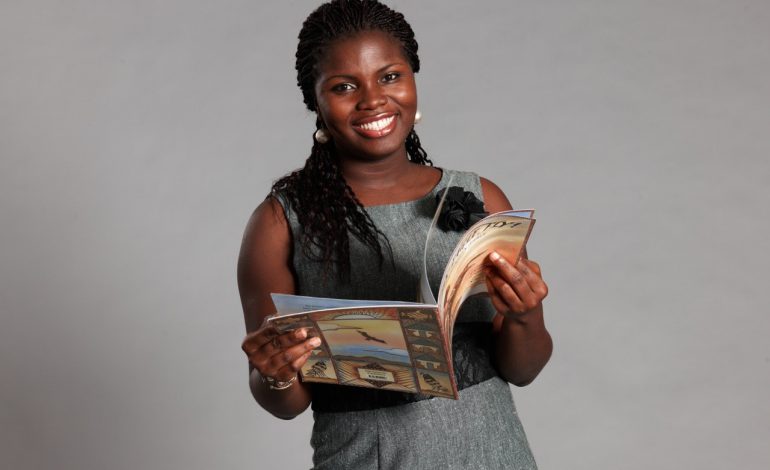
By Godwin Okondo
AS most African governments increasingly shirk their responsibility to adequately provide broad-based education for their citizens, certain individuals are stepping in to fill the gap with organizations that are focused on literacy. And so across the continent are a number of non-governmental organizations that are actively taking the gospel of literacy and writing to the disadvantaged communities that statistics hardly capture. Last Saturday, September 25, 2021, The Muna Kalati Talks Series 7 based in Ghana brought together three administrators of such organizations t share their experiences in managing literary and literacy programmes.
The focus was on how to sustain literary organisations across Africa so they serve the purpose for which they are set up. Three literary administrators were on the panel to discuss how they are sustaining their various literary initiatives in environments that desperately need the sort of interventions they provide but are grossly lacking in ability t fund and sustain what they do. The programme had as theme ‘Business Models of Literary Ventures: How to Sustain a Book Initiative Overtime’. The CEO of Muna Kalati, Mr. Christian Elongue, moderated the programme, and took the three panelists through on a journey of shared experiences in the field of literary administration.

Among the speakers were Nigerian Secretary General of Pan-African Writers Association (PAWA), Dr. Wale Okediran, Ghanaian Co-founder of Golden Baobab that also organizes the Golden Baobab Prize for children’s writing, Mrs. Deborah Ahenkorah, and Ugandan CEO of Literature Beyond Borders, Carol Seera. The panelists spoke about their attraction to literary arts and programming, starting a literary organization to promote literacy and writing in Africa, and how they have been able to raise funds to sustain their various organizations and activities.
Seera spoke about her motivation for starting Literature Beyond Borders, noting, “Our organization improved underserved governments’ schools in Uganda. We thought of what could help bring them up to speed with their reading levels. We wanted to include everyone in a particular class. We brought teachers with various experiences from various schools to share different ways of improving literacy. We started with a team of 12, writing stories about themselves and their experiences.
“Local funding is rare and extremely competitive. I started this award in the university. Growing up, I loved reading children’s books and I wanted to contribute. Books didn’t have pictures of black people, so I decided to create awards to encourage the writing of African stories for children.”
Speaking on sustainability, Okediran who founded Ebedi International Writers Residency, Iseyin, Oyo State, Nigeria, said, “We currently run two projects: the employee and writers’ residency programmes. We are able to generate funds from advertising, and anyone who brings in an advert gets a percentage.

“We also want to partner with other NGO’s to share the burden. One NGO pays for tickets (that brings African writers from all over the world to Iseyin for the residency) while we take care of the writers. We loaned a building which we use for the residency programme. The products from this programme also act as ambassadors in other countries; they try to put in a good word for us. In Africa, for now, donors are always very essential.”
Also, on sustainability, Ahenkorah said, “Every organization needs a donor to get started, either self-donation or from someone else. People who run literary organizations have put in something to build the organization. Wherever the funding is coming from, one has to find a way to regenerate these funds, make investments in something from which you can get returns.
“Initiatives in the book industry are dying because a lot of people don’t implement their vision to full capabilities. Some of us are coming with passion, which sustains to a degree, and some just come into the initiative to make money. For us to have that sustainability, we need to change that mindset.”
Seera also spoke on how she has been able to sustain Literature Beyond Borders, saying, “Sustainability is a part of the conversation as a team. We get rolling with work to be able to reach out to opportunities; we reach out to potential organizations that will buy or use our work. We also partner with organizations, and schools have provided materials and teachers to help out with our work.”
Making recommendations on the best practices for anyone venturing into the field, Dr. Okediran said, “Proper planning and funding is good for survival. It is good to start small to reduce costs and staff. You wouldn’t want to employ three people for a job of one person.

“Our residency is located in a rural area. We convinced the members of the community that the project was theirs, and they saw it that way. We devote three hours every week to mentor children in schools. Some things that should be paid for are given to us for free. We also enjoy the support of the government here in Ghana for PAWA.”
While speaking on support and donations from local organizations, Seera said, “We have tried online and crowdfunding, though it didn’t yield the best results. We also raised money to buy books on GoFundMe and we were successful. Passion alone won’t drive the organization to its full potential. We need to let communities know about our work, and if we are intentional about our work, we are likely to thrive.”
On organizational support, Ahenkorah said, “I don’t have any experience with this. No African is willing to pay a huge sum for a writing programme. The question on their mind would be how to make the funds back. I think that’s why some people rule that out sometimes. From my experience, the important thing is to focus on our strengths rather than constantly exploring new things we are not sure would work.”
Okediran also commented on organizational support, adding that “Each outfit has its own weaknesses. We have received requests from people who want to learn how to write and we want to create a writing school to see if we can get funding from that. In rural areas, they give foodstuffs instead of money.”
On the influence they as personal brands have on their work, Okediran said, “Sometimes background or expertise helps. For me, I had a lot of respect from junior writers. They assisted me with my organization and advised me. Some writers noticed that what I was doing was a literary thing and friends rallied round me and built a website free of charge. Some of these things are not as difficult as they look. Even though literary advocacy is difficult in Africa, but if you keep at it, you’ll make a breakthrough.”
“I guess it’s basically visibility for the organization. If your organization has built visibility online, it works; what you sell and what you stand for compel them, and that helps,” Ahenkorah said.
According to Seera, “It’s really how you present yourself. How do you make yourself busy on social media? I follow people who do the same work and comment on their posts, they recognize and follow me, too. Those who are interested in you and want to invest in you will find you online. Consistency about what you stand for online is very important.”




